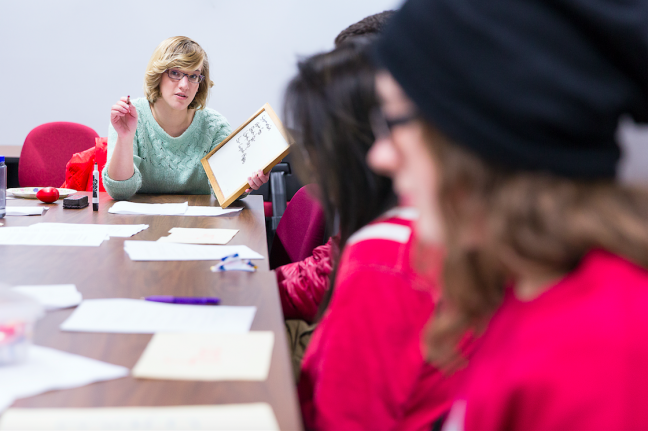The Wisconsin Emerging Scholars in Computer Sciences program began in 2004, but after Tracy Lewis-Williams stepped in as the program’s director last year, WES-CS is looking to expand beyond Introduction to Programming to include other courses.
The program as a whole has allowed University of Wisconsin to attract women and targeted minorities to the male-dominated computer sciences field.
WES-CS will look to provide women and minorities with one-on-one support to foster confidence — something lacking in many aspiring, yet underrepresented computer science majors, Mark Hill, UW Department of Computer Sciences chair, said.
Educators across the nation are combating the lack of diversity in computer sciences, a trend in the field as a whole, Hill said.
Only 14 percent of UW computer science majors are female, Nikki Lemmon, UW computer sciences undergraduate program coordinator, said.
“We need to be able to have a computing workforce that reflects the true diversity of our society,” Lemmon said. “Otherwise it will be just a segment of society who is going to be shaping it going forward.”
Interest in computer science growing at UW, but not among women
The Emerging Scholars program began in 2004 under Susan Horwitz, a former department professor. Built as a one-credit course intensive in peer leadership and individual instruction, the program is a study group comprised of approximately eight to 10 students.
Lemmon described WES-CS as an “open-door program” with no qualifications for acceptance, or special applications. Though the program specifically targets women and underrepresented minorities, it also seeks to benefit anyone with little computing experience looking to step into the field, Lemmon added.
Students typically enroll in WES-CS in tandem with the department’s introductory course, Computer Science 304, Lewis-Williams, who became director of WES-CS in January 2015, said. The program’s focus lies in the course’s fusion of logic puzzles and games with complex programming such as JavaScript, she said.
“We focus on the logic,” Lewis-Williams said. “If students encounter another programming class, they can take these logical problems and apply it there, as opposed to just in Java.”
WES-CS seeks to instill a sense of community among computer science majors enrolled in the program, Lewis-Williams said.
Through its intimate classroom setting and experienced peer advisors, the program aims to provide a “learning comfort zone,” in which instructors try to break down stereotypes and misconceptions regarding the major, Lewis-Williams said.
Saloni Saraf, a sophomore WES-CS student, said women can become intimidated when pursuing a computer sciences education because of the major’s overwhelming presence of male students. But according to Lewis-Williams, it’s simply a state of mind.
“There’s so much research out there [that says] if you expose women and minorities to computing, they actually have the problem-solving ability to do it,” Lewis-Williams said. “But there are some perceptions and stereotypes they need to get past in order to do it.”
UW sophomores work to enhance education through virtual reality
Many of the WES-CS leaders are now employed at companies like Microsoft, Google, Facebook and Epic, Lewis-Williams said, and they attribute their success to the WES-CS community.
Through working and actively learning in front of others, these students are able to build confidence and advance in the computer sciences field as professionals, Lewis-Williams said.
“Being in the WES-CS program and talking with other students and women who’ve never programmed before makes me feel much more confident,” Saraf said. “It’s also nice to see and get an idea of what I’m getting myself into.”
While Saraf did not always consider going into computer sciences, it has been a subject of interest. After gaining the necessary skills and attitude to feel confident going forward, Saraf said she is now interested in pursuing software development.
Saraf aims to eventually work with artificial intelligence and robotics, an area she would like to study in graduate school. With the WES-CS program’s extra resources and community of students like herself, Saraf believes the program is effective in bringing in women and targeted minorities to computer sciences.
“It’s a really important program,” Lemmon said. “There’s a lot more work, but it’s definitely a step in the right direction. I think the program continues to flourish and be a really great support system to try to encourage and retain more diversity.”



















